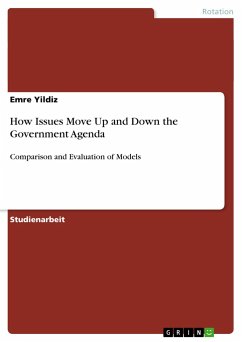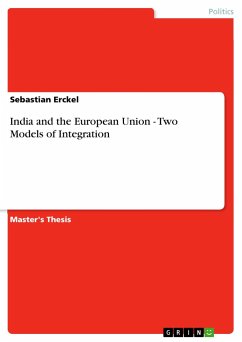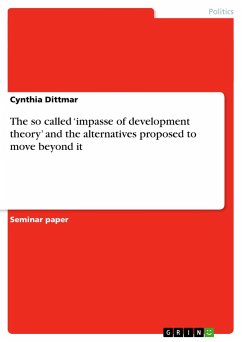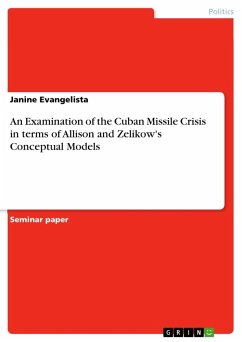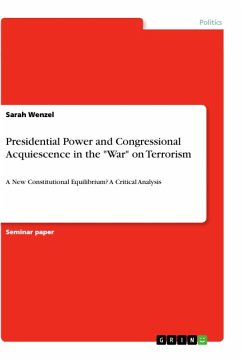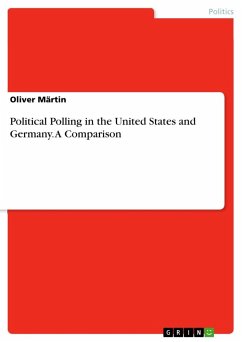Studienarbeit aus dem Jahr 2013 im Fachbereich Organisation und Verwaltung - Sonstiges, Note: 1,00, Jacobs University Bremen gGmbH (School of Humanities and Social Sciences), Sprache: Deutsch, Abstract: (...) If policies are reactions to social problems, prior to action policymakers must determine what the most pressing issues are that deserve government attention. Policymakers are not only pushed by various interest groups, think tanks, and other organized constituents to pay attention to different issues, but are also in disagreement among each other regarding which issues merit space on the agenda (Dery, 2000, p. 39). The question therefore is: Who decides what a problem is and if it deserves government attention? And more importantly, how does policy agenda change and what role do policy actors play in this context?This essay attempts to find an answer to these questions. It aims to explain why, for instance, child care in the US suddenly moved from relative obscurity to the government agenda (Nelson, 1984). Further, what was decisive for education to become a highly important agenda item in the same period when child care became high-profile? This essay will show that neither the pluralist, nor the iron triangle framework is able to provide a convincing explanation. It will argue that agenda setting is a political power struggle in a highly complex and dynamic process where the way an issue is defined and perceived by the public matters most for agenda changes. It will show that the subsystem theory, the advocacy coalition framework, and the punctuated equilibrium model do all contribute to our understanding of how issues move up and down the agenda. However, it is, as the paper argues, Kingdon's policy window and three streams building up on the other theories that has the most explanatory power and is the most rigorous theoretical framework. The essay will first show in what way agenda setting is about political power. Secondly, it will turn to theearly agenda-literature, the pluralist and the iron triangle frameworks. Thirdly, the essay will introduce Heclo's subsystems theory. In the fourth step, it will present Sabatier's Advocacy Coalition framework. After examining what Baumgartner and Jones put forward as "punctuated equilibrium", it will discuss Kingdon's policy window model and how it incorporates theoretical elements of the previous frameworks. In the end, the paper will give a conclusion.
Hinweis: Dieser Artikel kann nur an eine deutsche Lieferadresse ausgeliefert werden.
Hinweis: Dieser Artikel kann nur an eine deutsche Lieferadresse ausgeliefert werden.

